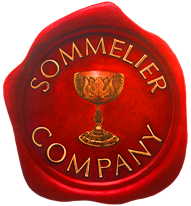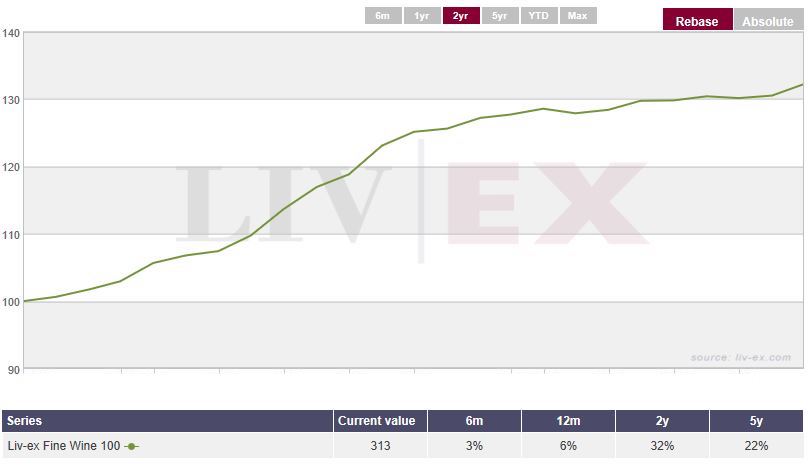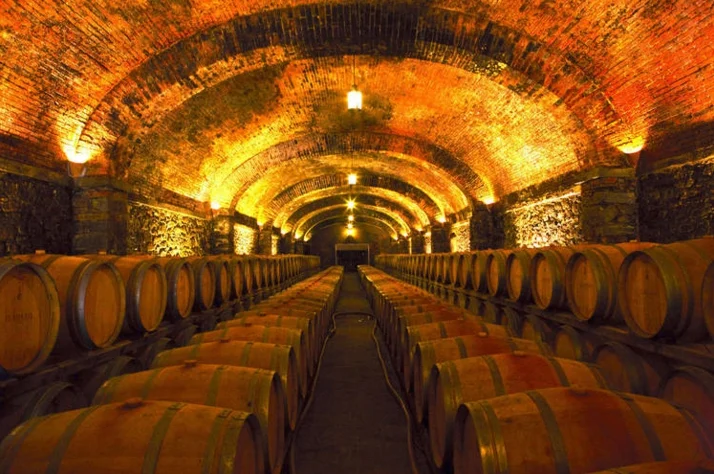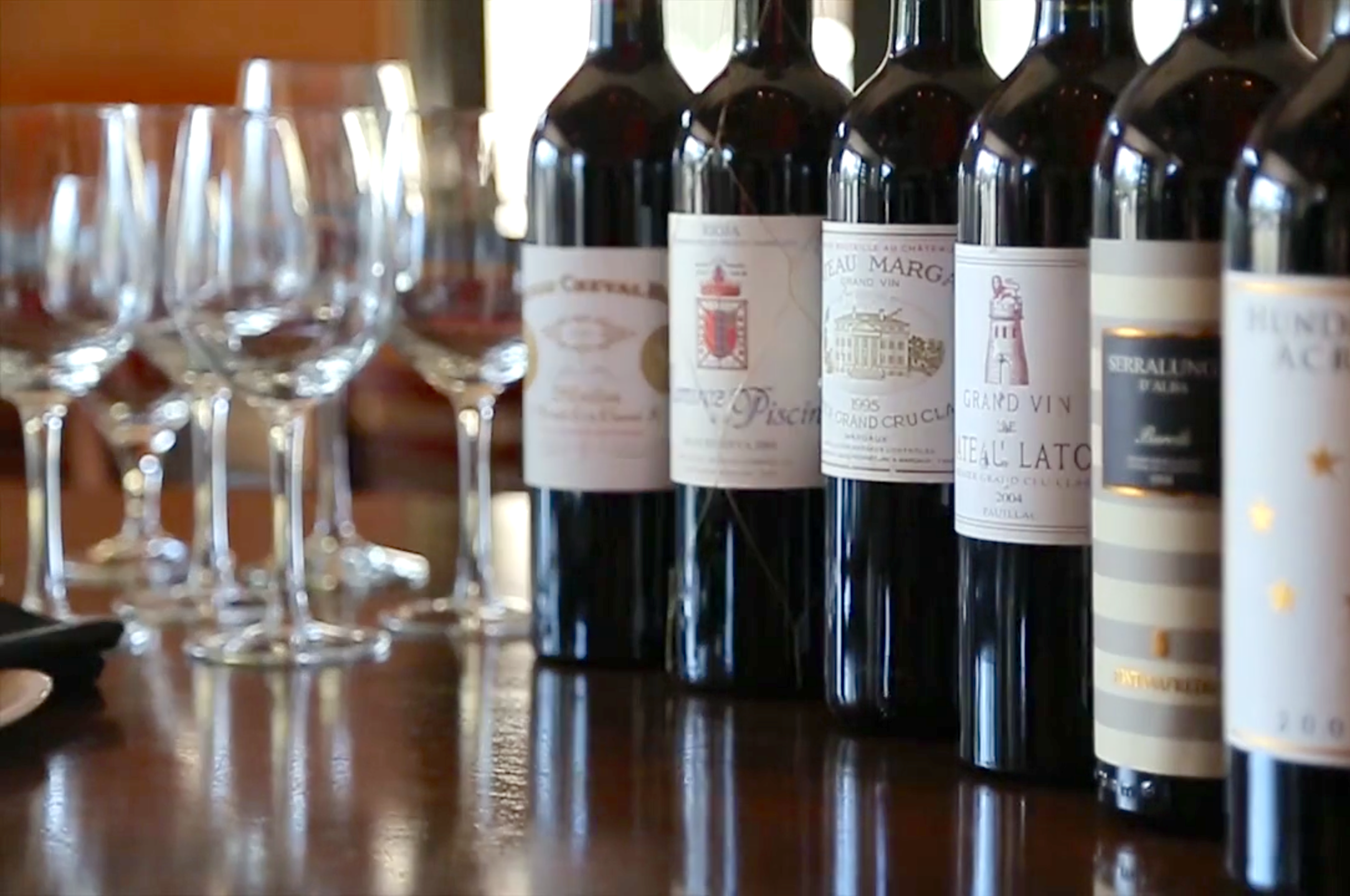Wine Investment Management for Institutional Investors
We are leaders in active wine asset management, and we currently welcome requests for sub-advisory investment management services.
Send an email to our portfolio management team, and find out more about opportunities in wine investing: SommelierCapital@USA.com.
Investment opportunities are open for certain accredited investors (per SEC regulation D, rule 501a). Term sheet and prospectus are available.
"The great wines of France, Italy, Spain, Australia and California have been sought-after collectibles for many decades. With the recent proliferation of trading exchanges, and heightened consumer interest and sophistication, a new asset class is born—and it offers long-term, attractive returns for qualified investors."
The Investment Opportunity:
Fine wine has been one of the most consistent and best-performing asset classes on record. Liquidity has been the challenge, but has now increased to practical levels.
Wine improves with age and becomes more valuable to the market over time, as most supply consists in current releases sophisticated consumers consider too young to enjoy.
Recent market improvements, with active wine exchanges and increased trading liquidity, have made active investing viable.
Major market inefficiencies still exist—and professional investment management can take advantage of them.
Few individuals understand both the world of high-end wines and the world of professional investment management. We do.
The core strategy relies on careful wine release analysis, holding the wines until their quality and demand peak, and then exiting positions at the optimal time.
Annual performance of the fine wine market has been stable and stellar:
Contact us for more information at SommelierCapital@USA.com.
The Opportunity | Investing In Wine
Fine Wine is an Attractive New Asset Class
The great wines of France, Italy and California have been sought-after collectibles for many decades. Considered as appreciating assets, wine returns have averaged surprising returns over the last decades. They have outperformed global equity markets, with less volatility, and unlike other comparable assets, wine becomes intrinsically more valuable for many years after release.
Until recent years, realizing these gains in the market has usually been challenging, due to illiquidity and the prohibitive transaction costs of auction houses.
Today, as heightened consumer interest and sophistication have expanded the cultural role of wine generally, investors seeking new and financially attractive passion investments have fueled a proliferation of new trading exchanges and market infrastructure, increasing the liquidity of wine assets and dramatically cutting transaction costs.
However, access to this proprietary exchange and related market infrastructure remains limited to a small membership pool of individuals and companies, mostly in the wine trade. Our firm is among the few investment firms with trading access, enabling us to realize attractive gains for our investment partners, as the fine wines in our portfolio continue to appreciate.
The Fine Wine Market is Opening: Alignment of the Stars
The cultural shift toward greater interest in wine, in the United States and among the swelling numbers of affluent middle- and upper-class luxury consumers in developing countries, has created a growing disequilibrium of supply and demand in global wine markets.
Top wines are among the few commodities for which increase in demand cannot cause a corresponding increase in supply. By their nature, great wines can only be produced in small vineyard plots, under ideal climatic conditions. Production cannot be increased to satisfy new demand without diminishing quality. For this reason, increases in wine interest generally, and demand for specific wines in particular, can only be expected to increase asset values.
Wine values are also significantly affected by the process of aging. While the wines increase in quality as they approach maturity, their global supply diminishes with end-user consumption. The reputations of quality producers and vintages have always grown over time, and have increased with the advent of review platforms and with general knowledge about wine.
Price increases have been shown to increase the status and reputation of wineries, which in turn increases the market values of their wines, and this effect can be expected to hold for as long as the consumer trends outlined above continue to drive wine prices upward.
These trends—alongside the development of new market infrastructure to improve liquidity and decrease transaction costs—has created an “alignment of the stars” for wine investors.
The Long-Term View on Fine Wine Investing
We see every reason to expect increases in fine wine values, insofar as those values are affected by the trends outlined above.
For as long as consumer interest continues to grow, the disequilibrium of supply and demand can be expected to grow. At the same time, the aging process itself can be expected to increase intrinsic values, irrespective of consumer trends or market forces.
As pioneers in the field of wine investment with unique access to market infrastructure, research, and expertise, we expect to continue to deliver strong performance.
Wine Investment Strategy
Wine Investment Philosophy
Our investment objectives are twofold: providing beta and providing alpha. By “providing beta,” we mean establishing market exposure, or “getting into the game” to benefit from overall market growth. By “providing alpha,” we mean strategically outperforming other market participants, or “winning the game.” Our access to proprietary market infrastructure allows us to participate in the gains that can be expected in the overall market, while our fundamental expertise and access to proprietary research and methods allows us to outperform other participants.
The wines in our investment portfolio are drawn from a relatively small universe of the world’s best and most liquid wines—about 1% of global production. Among eligible wines, we select specific regions, producers and vintages we expect to increase in value up to the point of their peak maturity. These wines are sold at their peak, or opportunistically with market demand.
This strategy relies on careful analysis of wine regions, producers and vintages—and on our holding the wines until the right time and exiting the positions through the best channels.
Firm Profile
The combination of wine and investment expertise allowed Sommelier Capital Advisors to pioneer active wine asset management, offering one of the few investment strategies in the world dedicated to fine wine. Our Advisory Board consists of investment veterans affiliated with PIMCO, KPMG, Western Asset, Piper Jaffray, Towers Watson, and others, as well as wine experts from the Masters of Wine Institute and the Court of Master Sommeliers.
Exchange and Infrastructure Access
The key to profitable wine investment, and the precursor to our launching the fund, was the recent development of robust wine trading exchanges and associated market infrastructure, which strongly improved the liquidity of wine as an asset class, and brought down formerly prohibitive transaction costs. (Auction house fees often exceed any investment gains.)
These proprietary exchanges are not open to the public, and ours is one among few investment firms with full access for purchasing and selling. By using these exchanges, our partners can be certain of the provenance and appropriate storage of all wines in our portfolio. The wines are aged in bonded and insured facilities not open to the public, with multiple layers of security.
Investor Profile
Qualification
Investment opportunities with us are limited to accredited investors, per Securities and Exchange Commission (SEC) regulation D, rule 501a. Currently, the firm only offers opportunities to institutional investors.
Motivation
Suitable investors are motivated by a desire to further diversify their portfolios into new and attractive alternative asset classes. Most are also avid wine consumers who like the idea of reaping returns from a passion investment.
Timeline
Due to the nature of the underlying asset, and the strategy and structure of the fund, potential investors should think of wine investment as a long-term commitment, of at least five years.
Contact Us
Please include evidence of at least $100mln of investable assets, and institutional investor status.
















